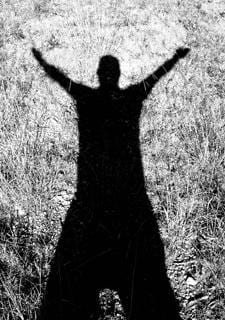Why are gay men sometimes so horrible, mean and stupid, to me, to everyone and to each other? It seems as though too many of us hate ourselves, really hate ourselves.
Despite all our progress, our gay marriage and Pride parades, too many of us still take self-destructive and foolish risks, too many act as if we think we are worthless pieces of shit.
One night, for example, I picked up a younger, sexy guy just as I was leaving a bar. In the cab, in the elevator and in my living room all he could talk about was getting some crack.
“Man,” he said, “crack makes me so horny all I want to do is get gang-banged by big cocks.”
I told him he was pretty much out of luck on all fronts. I don’t have a big cock or a gang, and I didn’t have any crack.
“I can’t have sex without crack and I want it so bad,” he said. “Can’t you please, please get some?”
The guy was practically having a breakdown. He was so desperate and pathetic I couldn’t help but feel sorry for him but there was nothing I could or would do. I gave him money for a cab and sent him on his way.
Peter Bochove, activist and coowner of Toronto bathhouse Spa Excess, says the root of the problem of poor self-worth is the messages young people get, particularly those who grow up in small towns.
“The big cities may be better but those small towns can be pretty awful for gay kids and it does a lot of damage to them when they are most vulnerable,” he says. “The result is poor self-esteem that manifests itself in all sorts of unpleasant ways ranging from risky to outright suicidal behaviour. Some people take risks because they don’t care about themselves while others do things certain to ruin their lives because they loathe themselves.”
Bochove says he understands why gay men who are in pain abuse substances but that he doesn’t put up with it in his bathhouse.
“We may have compassion but what we don’t have is patience,” he says. “If we catch you doing drugs in our bathhouse we’ll throw your ass out on the street.”
Maybe social acceptance is key in the development of self-worth for gay men. But if that were true shouldn’t gay marriage have acted as a panacea?
“From my point of view gay marriage has actually made things worse in the short run,” says Bochove. “In all my years in the community I have never seen such a terrible outpouring of hatred against us as we saw during the gay marriage debate. This has to have had an effect on people.”
It is, of course, possible for self-loathing gay men to make self-affirming and positive choices.
Michael De Corte, for example, says he nearly self-destructed before he managed to turn his life around. He grew up in conservative northern Ontario. He was in high school when he came out to his parents. His worst fears were realized.
“My mother’s reaction after I told her I was gay was to tell me that she was afraid friends and family would stop visiting her because they would be scared to use the same toilet seats as me,” he says. “It was particularly devastating to me because I always thought of myself as a mama’s boy and here our relationship was being destroyed. It really hurt.”
De Corte says his self-esteem plummeted as his family and society taught him that gays are bad people.
“What made matters worse was that I lived in constant fear of having the shit kicked out of me at school for being gay,” he says. “It was hell.”
When he eventually landed in Toronto he brought his small-town ghosts and insecurities along with him.
“I turned to every addiction imaginable for comfort: cocaine, crack, pot, alcohol, cigarettes, food, you name it, I abused it,” he says.
He says he became a popular figure on the Toronto gay club circuit.
“I thought I was glamorous because I did drugs and partied all the time,” he says. “Everything I did said, ‘Look at me, I’m so cool.’ But what I was really highlighting for everyone to see was what a fucked-up mess I was.”
De Corte says he finally crashed one night after a crack binge in which he found himself on his hands and knees in the street begging a police officer to tell him how he got there.
“That was my physical rock-bottom,” he says. “I realized then that I thought of myself as a living piece of shit and I hated myself. I hated myself because I believed what society said: that gays were worthless and a good life wasn’t possible for me.”
De Corte says that’s when he made the choice to turn things around.
He quit drugs, booze and smoking. He lost some of the 250 pounds he’d packed onto his 5-foot 7-inch frame and he got healthy. Today, at 33, he is a certified fitness instructor and yoga teacher.
A little pride did the trick.
“Not only do I like myself now,” he says. “I’m fucking awesome. I’m a great guy and I’m hot to boot.”

 Why you can trust Xtra
Why you can trust Xtra


